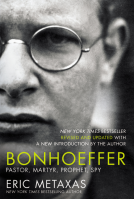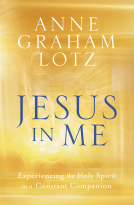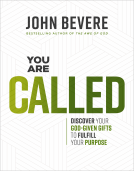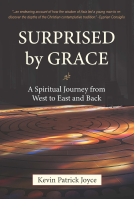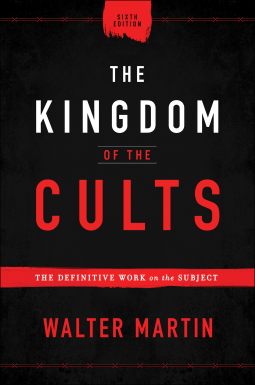
The Kingdom of the Cults
The Definitive Work on the Subject
by Walter Martin
This title was previously available on NetGalley and is now archived.
Send NetGalley books directly to your Kindle or Kindle app
1
To read on a Kindle or Kindle app, please add kindle@netgalley.com as an approved email address to receive files in your Amazon account. Click here for step-by-step instructions.
2
Also find your Kindle email address within your Amazon account, and enter it here.
Pub Date May 21 2019 | Archive Date May 16 2019
Bethany House | Bethany House Publishers
Talking about this book? Use #TheKingdomOfTheCults #NetGalley. More hashtag tips!
Description
The leading reference tool on non-Christian religions, now completely updated!
In an era of confusing religious ideas, Christians need information they can trust. And as Western culture drifts further and further from its Christian roots, there is an even greater need for awareness of the beliefs of those around us.
The Kingdom of the Cults equips readers to
● understand the claims and flaws of numerous cults, sects, and religions
● identify cults that masquerade as Christian denominations
● contrast their damaging claims with biblical teaching
● effectively present and share the Gospel of Christ
● approach cultists to aid in the redemption of their souls
This new edition, comprehensively updated by experts Jill Martin Rische and Kurt Van Gorden, builds on Dr. Martin's authoritative original text, and includes helpful information about changes and developments in belief systems around the globe in recent years.
Readable and reliable for teachers, pastors, and lay readers alike, The Kingdom of the Cults is sure to remain the go-to reference book on non-Christian religions for years to come.
Available Editions
| EDITION | Other Format |
| ISBN | 9780764232657 |
| PRICE | $46.99 (USD) |
| PAGES | 781 |
Featured Reviews
 Victoria I, Media/Journalist
Victoria I, Media/Journalist
This book was far less intriguing than I was hoping it to be. While the text, cover, and description make it look like its going to be a fascinating treatise on cults, its more of a Christian "you're all off the path" kind of book. It just couldn't get into this book at all.
 Marie S, Reviewer
Marie S, Reviewer
Walter Martin was a giant of the Christian faith especially when it came to researching and giving us correct information on the cults. He held nothing back but did not rely on Urban legends but true facts about the cults. I highly recommend this book.
 Conrade Y, Reviewer
Conrade Y, Reviewer
We are living in an increasingly pluralistic, multi-cultural, multi-religious, and dizzying array of beliefs, sub-beliefs, and many alternative philosophies. Author Martin calls this the "kingdom of the cults." Since 1965, while the original version is somewhat outdated, the challenge remains the same: Learning how to answer the many cults on the outside or the fringes of mainstream Christianity. It is important to note that the author uses the word "cult" not as a derogatory way but to spell out their differences from traditional Christianity. This is particularly so when many of them insist that they are the one true religion. In the Early Church, there were already heresies that attempt to call themselves Christian. The Church fought many theological battles, leading to the gathering of the bishops' council to meet at places in Chalcedon, Nicaea, Constantinople, Ephesus, and others. Backed by able theologians such as Athanasius, Augustine, Gregory of Nyssa, Gregory of Nazianzus, the Church Fathers, the Cappadocian Fathers, and many more, the Church held fast. This book may not be in the same position as the creeds of old but it showcases the differences of the various cults from Christianity. Martin gives us many historical analyses for us to understand the background; theological evaluation and comparison; and the way we could respond through "apologetic contrast." The concern is that the Church at large is increasingly less able to discern the cults. Not only that, there are some who are openly embracing them, at the risk of compromising our beliefs. This is a concern.
This handbook serves also as a reference book for the language and vocabulary we need to understand. Even basic terms such as "sin," "guilt," "justification," needs to be redefined. With proper understanding of the terminology, we would then be able to ask questions about what people mean when they use certain semantics. It is not surprising that even Christians themselves might struggle to give a definition themselves. That is why this book is not just about understanding the cults, it is also about understanding what we believe. We learn about the "psychological structure of cultism." A fine point is to learn not to use the terms we know to start an argument. Instead, the way to interact is to learn how to communicate love and sincerity in a climate of "theologically conditioned reflex." Some crucial notes to remember are:
Cults tend to be characterized by "closed-mindedness" so we should taper our expectations;
They tend to practice "genuine antagonism" toward mainstream Christian beliefs to the point of rejecting even the believer;
Way forward would be to differentiate the theology from the person; (aka don't take it personally);
Cult members see it as their calling to "save" us;
There is a sense of isolationism among various cults;
...
One valuable part of the book lies not in the details but in the subtle psychological inclinations among the cults. Some of the observations are quite concerning, such as the Jehovah Witnesses' see the Christian clergy with "pure hatred" and their preoccupation with "Armageddon." Former Mormons are blatantly discriminated against. Christian Science is the modern Gnostic belief of separating the reality from the spiritual, so any talk on sin would be limited. The book covers Spiritism, Theosophy, Bahai, Unity, Armstrongism, Unification Church, Scientology, Unitarianism, Rosicrucianism, Swedenborgianism, etc. Other religions include Buddhism, Hinduism, Islam, Eastern religions. Even the Jesus according to the cults are used and understood differently. Each chapter deals with a particular cult or religion with some quick facts, history, distinguishing features, comparative religious survey, some key differences, followed by a conclusion. Each is a fascinating read.
My Thoughts
First, there are both old and new material in this book. This classic handbook on understanding cults is now in its sixth edition. First published back in 1965, it has been a helpful tool to enable Christians to know more about the different variants of cults and religious beliefs. As many of us know, things change from time to time. After 55 years, there is a need to update this book while preserving the format and intent of the original version. Using (~) to denote new material, readers familiar with the older edition would be able to compare and contrast the past and the present easily. Jesus has already forewarned us that false prophets and erroneous beliefs will come sooner rather than later. I appreciate the updates which help us keep in step with the changes. This is important because it puts our credibility at stake.
Second, recognize that cults and new age beliefs are nothing new. That is why we need to be on a vigilant watch. With each changing generation, beliefs and emphasis also change. Lest we go on a senseless witch-hunt, it is pertinent to remember the words of Dr Jan Van Baalen, that "the cults are the unpaid bills of the church." It is because the Church has in some way failed to address the concerns appropriately, that has led to the proliferation of cultic beliefs. We have much to learn. Before we can argue against anything, we would need to know what we believe. We need to understand the concerns of those opposing our beliefs. We need to let the Scriptures speak. Unfortunately, many are still complacent about the Christian faith.
Third, the best defence is always the Word of God. Understood properly, we would have an answer against any kind of theological attacks. I must commend the author for the amount of homework and resources he has collected to show us that the things in the book are not just what he said but what he had meticulously collected from official sources. Just take a look at the bibliography of each cult or religious belief concerned and you would be amazed. Anyone wanting to do research on the cults will see this book as a useful primer.
Walter Martin is author of a dozen books and articles, especially in the area of comparative religion. He was also founder and director of Christian Research Institute, an organization charged with equipping believers to address the challenge of cults through apologetics and education. He has four earned degrees. Martin passed away on June 26th, 1989.
Rating: 4.25 stars of 5.
conrade
This book has been provided courtesy of Bethany House Publishers and NetGalley without requiring a positive review. All opinions offered above are mine unless otherwise stated or implied.
Very informative and written in a way that is easily understood. Great resource when researching different cults.
This is an important reference book about major cult systems that is so relevant and timely in this day and age. A well-written and well-researched book that will certainly deepen our knowledge and help us in our discernment. I highly recommend this book to both new and seasoned believers!
 Sherri S, Reviewer
Sherri S, Reviewer
This was an interesting, well thought and written book on the various cults in our society. Martin describes the criteria that he used to distinguish a cult from mainstream religious, and based the ones he listed upon that.
Each chapter was interesting and provided the belief system and how it compared with modern day Christianity and their beliefs.
In the appendix, are a few religious, such as Seventh-day Adventist, that doesn’t quite hit the cult status, but yet tiptoes on the edge. He gives his reasonings why and how they fit in his book from years prior.
All in all, a very interesting read in learning about alternative religions, also known as cults.
The publisher has provided me with a complimentary copy of this book or advanced reading copy.
Interesting overview of different types of religious organizations, what they believe, and how to evangelize them with the word of God.




